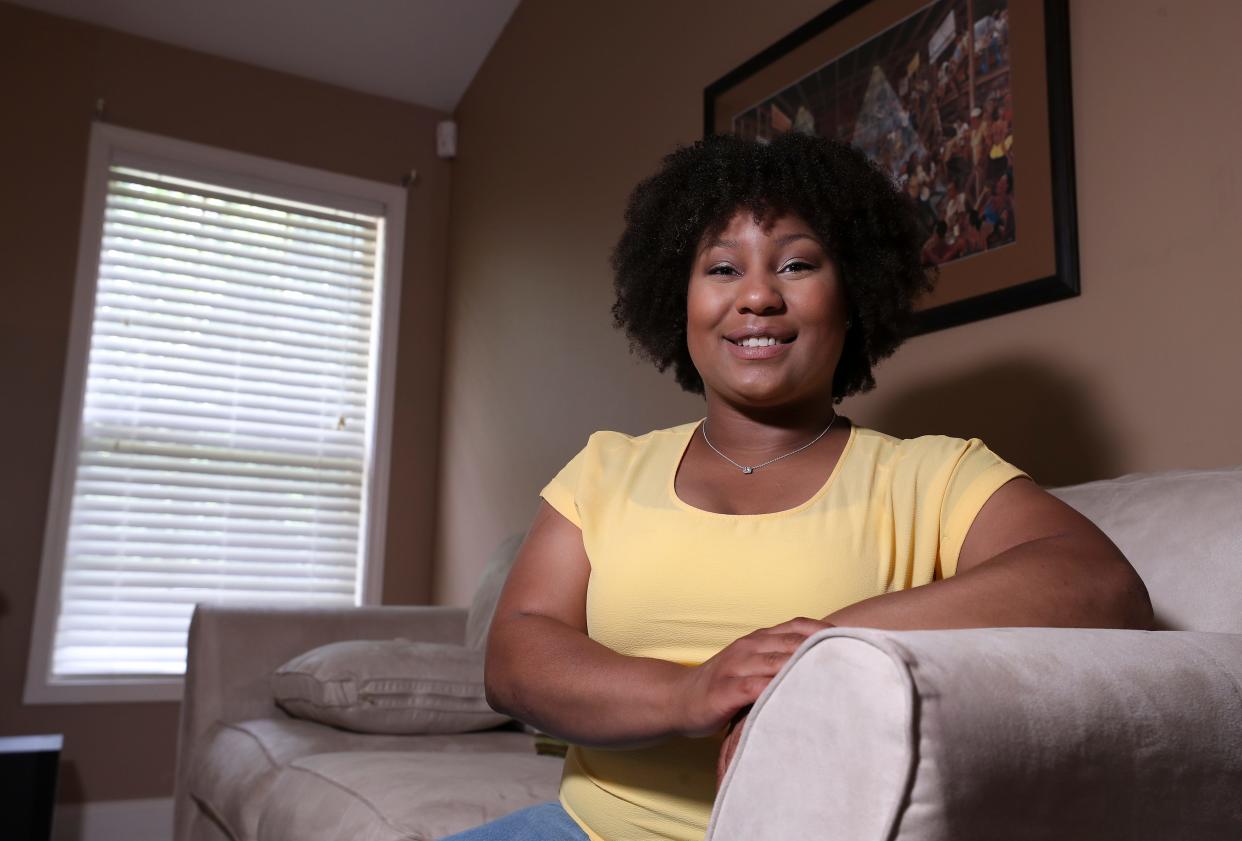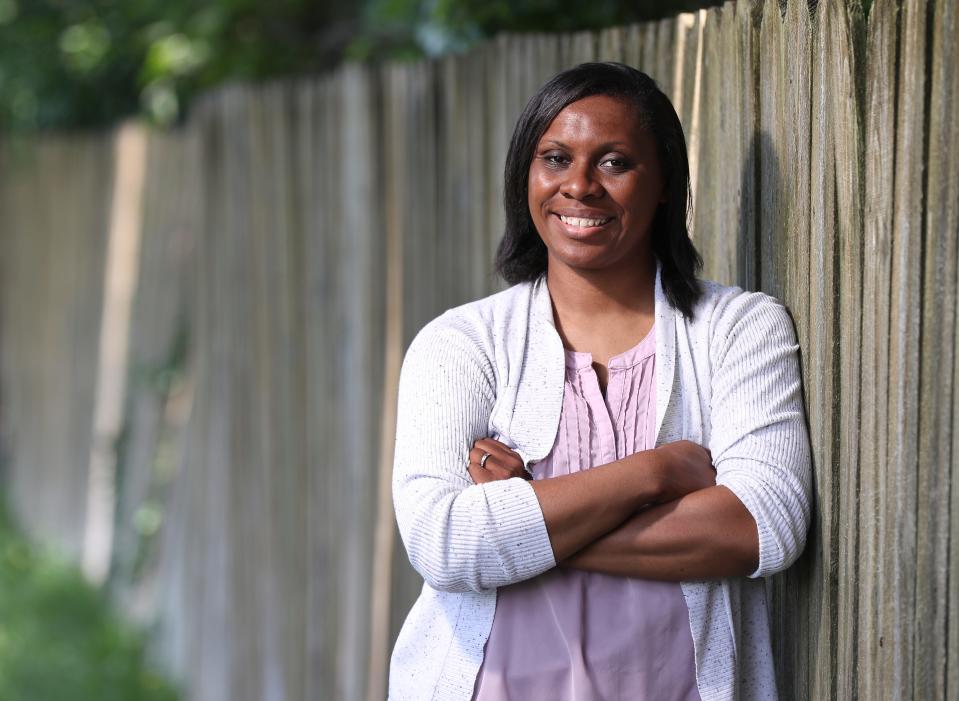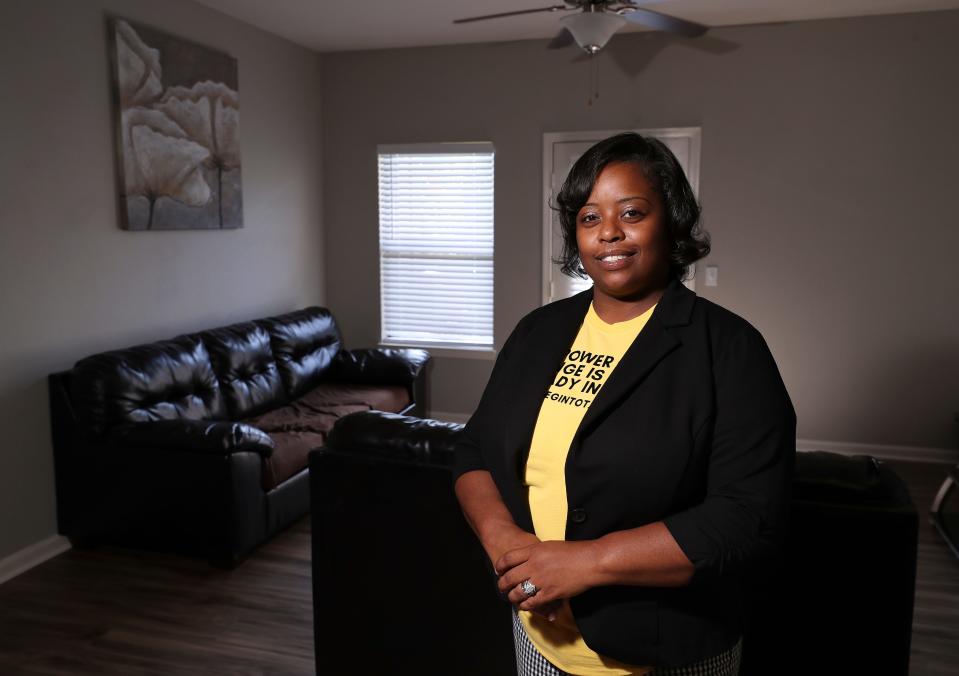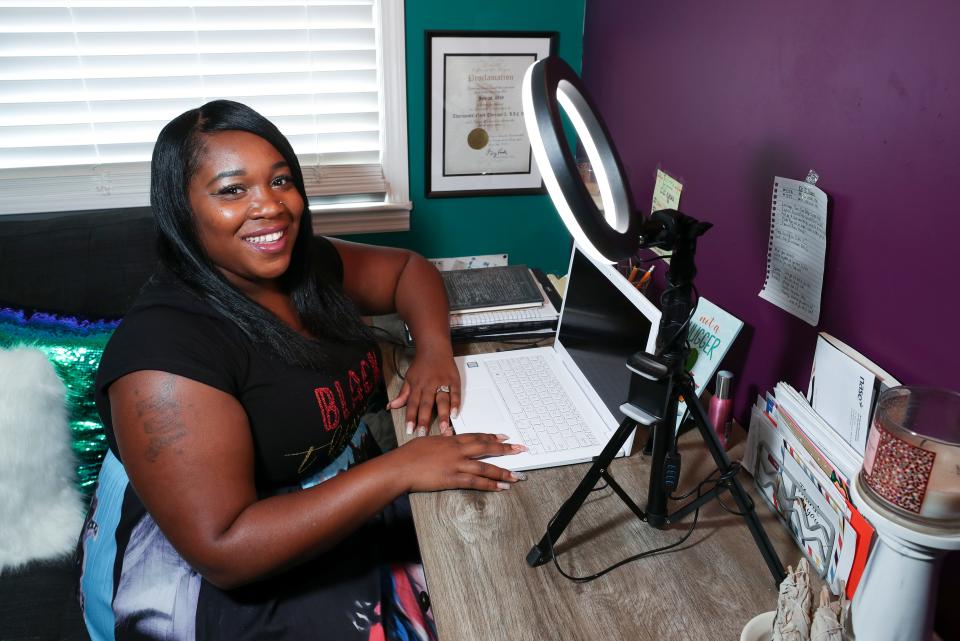'You don't heal. You just deal': How Black therapists cope with racial trauma while helping a community

LOUISVILLE, Ky. — Darian Ferguson celebrated her 27th birthday a month after Breonna Taylor would have celebrated hers.
Celebrate isn’t really the right word, though.
Taylor’s death on March 13 is a stark reminder of just how quickly everything she’s worked for could be taken away if police officers fire guns into her home.
As a therapist she has a strong list of credentials after her name — Masters of Education in Counseling and Human Development, Licensed Professional Clinical Associate, and Positive Behavior Support Specialist.
As a Black woman? She knows none of those titles matter if a battering ram shows up at her door like it did when the Louisville Metro Police Department served a no-knock warrant at Taylor’s apartment.
“We’re a month apart,” she told me, referring to Taylor. “It’s like grieving myself and all my opportunities that could be taken away from me in an instant.”
Now as weeks of protests following Taylor’s death have pressed on in Louisville, the tragedy has brought systemic racism, police brutality as well as racial and generational trauma into the forefront of local, state and national conversations.
Ferguson along with three other local counselors — Briania Davis, Elishia Durrett Johnson and Erica Reevey — made something overtly clear: They experience generational and racial trauma every day simply by being who they are.
And it doesn’t matter what training you have. In high-stress, terrifying situations, therapists need self-care and therapy, too.
Black officers face insults, personal attacks: A double dose of pain and frustration
'You don't heal. You just deal.'
The women are professionals who've dedicated their careers to improving their clients' mental health. They’re young, vibrant and ambitious. They work with Black and white clients. A couple of them are entrepreneurs who’ve launched businesses and nonprofits. Some are mothers and wives.
All four are victims of racism.
And without any hesitation, they all agreed the last few months have been traumatic.
As a Black person, it's hard to watch an eight-minute video of George Floyd dying without wondering if it could have been you with an officer’s knee crushing your own airway.

“It has a psychological impact that I don’t think the world was ready for,” Davis, a marriage and family therapy associate with Open Arms Wellness, said. “It was played over and over and over and over again, and you couldn’t get away from it.”
In the mental health field, you essentially cope with racial trauma the same way you treat traditional traumas. Therapists recommend a wave of self-care practices, said Durrett Johnson, who owns Begin to Talk LLC, a practice that works to eliminate the stigmas people feel when seeking mental health services.
Eat better. Sleep more. Exercise.
Self-care can be used to ease the nerves and anxiety that keep people from wanting to get out of bed. It can help calm the anger and disappointment with a system that was built to benefit white people.
But you can’t recover from racial trauma.
Overcoming a trauma by definition means the traumatic experience has ended. When you're Black, you can face racial trauma any time you step outside your front door.

“You don’t heal,” Durrett Johnson said. “You just deal.”
Police interviews: Breonna Taylor's home was a 'soft target,' suspect already located
From generation to generation
Reevey is unique: She's a therapist for therapists.
She’s the CEO and Founder of Therapists Need Therapy 2, also known as TNT2, and a co-founder of The Black Counseling & Consulting Collective. Through these initiatives she facilitates support groups for therapists as well as conversations about how Black therapists can thrive in a predominantly white field.

Through her work as a licensed clinical social worker, she has become a sounding board for her peers on racial trauma and a grief that is all too familiar.
“I’m sitting here, and I have my own story I could tell,” Reevey said.
The mother of five has a 15-year-old Black son, and they live in a predominately white area where neighbors fly Confederate flags. She’s been having conversations with him about what it means to be a Black boy in America since he was nine years old. They've been lucky up to this point, but the fear is still there.
“Pick your friends wisely,” she tells him. “You may get in trouble, and they may not.”
At the same time, it’s the next generation that gives her hope.
“What keeps me going that I do have children that have to grow up in this world,” Reevey told me. “If I don’t do my part today, it could mean life or death for them tomorrow.”
Reevey recently saw a list of about 60 moments and laws that have limited the Black community.
Going back to first slaves in the United States, white supremacy has lingered in this country and passed from generation to generation. The oppression continued with Jim Crow Laws and then led to the lack of resources the community has today. There are so many milestones in between those monumental moments where white people have made decisions that have defined Black lives.
That list stuck with her. She said she wishes she could print off that list and give it to everyone to see.
She's hopeful the The Black Counseling & Consulting Collective can help with that, Reevey said. They want to be a one-stop shop for low cost mental health services for the Black community and a catalyst for healing.
Durrett Johnson, too, is spearheading a new nonprofit called Healing Emotional Abuse & Racial Trauma or H.E.A.R.T., a mental health organization with culturally competent therapists and case managers to address the effects of racial trauma and systemic racism.
She spent her Fourth of July weekend working through the paperwork and rallying the right people to put H.E.A.R.T. in motion. She’s recruited 10 therapists and another two case managers to the cause.
Yes, it’s important to take care of herself, she told me, but in this environment it’s also crucial to enact change in whatever way she can.
Feeling the same grief as a client
In mental health practices, self-disclosure is frowned upon because therapy is supposed to be about the client, not the therapist.
Davis has a diverse client mix, including white people who are trying to wade their way through the modern Black Lives Matter movement.
Some ask how she and her family are doing, and it’s hard to know how much to share. Davis can sense that they’re concerned and that there’s a genuine level of care coming from them.
Sometimes they’re Black, and they’re feeling much of the same things she is.
“It becomes difficult trying to navigate that balance about how much you share and how much you don’t,” she told me.
That question — “How are you doing?” — is a tough one. The movement has infiltrated her work and her home life. She's married to a white man, and they have a seven-year-old daughter together, so conversations about race aren't new in her house.
Sesame Street had a special that helped explain the topic to her daughter, but hashing out the racial culture of the 1960's using the Disney movie Ruby Bridges was more difficult. Her little girl didn't understand why people were so mad at the six-year-old Black student in the film, who was the first child to integrate an elementary school in New Orleans.
She’s spent much of the pandemic educating herself and participating in webinars. She’s read articles and books by white people with opposing opinions on systemic racism.
Helping other people and advancing her own skills allow her to compartmentalize her own trauma.
You'll hear that from a lot of therapists, these women told me.
They find peace by helping others.
'That person that can translate between both sides'
In the past few weeks, Black therapists have become a common a presence at "Breonna Square," which is the name protesters have given to the demonstration headquarters in Jefferson Square Park in downtown Louisville.
Ferguson, the counselor who's just one month younger than Breonna Taylor, has been among the crowds.
It's a strange place to be in that movement. She experiences racism, too, but she also has people depending on her for an answer to it.
Being down on that Square made her heart feel full, though, she said. The Black community has always been resilient, even dating back to the slave ships where people danced and sang in code.
She feels that in the "no justice, no peace" chants that fill downtown Louisville's streets.
At 27-years-old she knows she has opportunity to be a catalyst for change, even if it's difficult.
She'd like to see a place in society where Black people can truly feel safe. Eliminating no-knock warrants like the one that cost Breonna Taylor her life is progress, she told me, but there are so many more systemic injustices that still need to be addressed.
Unlike Breonna she had the chance to celebrate her 27th birthday this year.
She still has a life, a spirit and a mental health background she can bring to a much larger conversation.
“I see my role … being that person that can translate between both sides,” Ferguson told me. “Be boots on the ground with the people, but go sit at the table with the authorities and say, 'This is what the people need.' ”
Follow the writer, Maggie Menderski, on Twitter @MaggieMenderski.
What are the CDC school guidelines Trump wants changed amid COVID-19? These are the highlights
US coronavirus map: Tracking the outbreak
This article originally appeared on Louisville Courier Journal: How Black Louisville therapists live, cope and work with racial trauma

